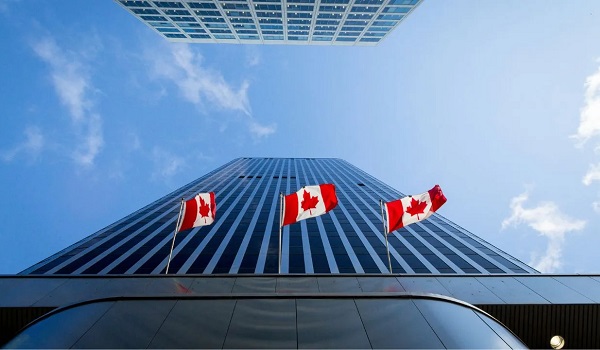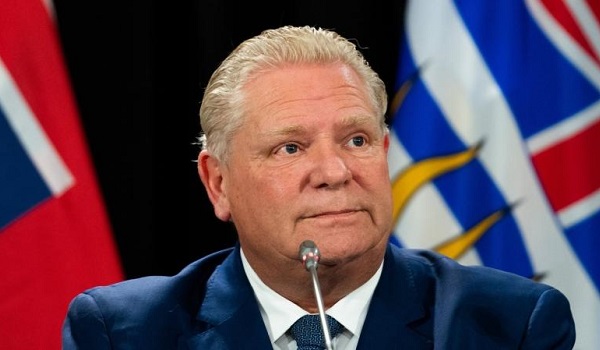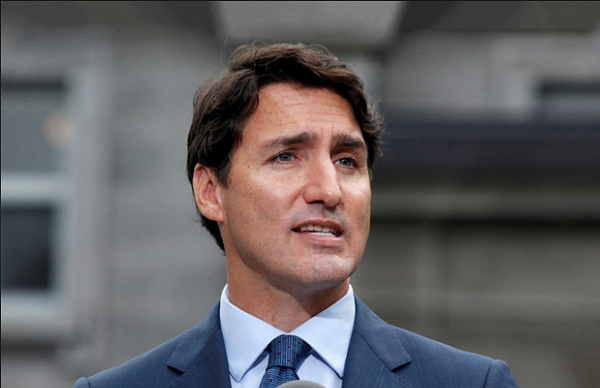Tariff threats: Trump’s ultimate goal is discouraging business investment outside the U.S., Freeland says
Donald Trump’s tariff threats are ultimately about discouraging business investment in Canada and other countries outside the United States, Deputy Prime Minister Chrystia Freeland says, and Ottawa plans to fight this in an effort to attract capital.
Mr. Trump, the U.S. president-elect, recently announced that he plans to impose 25-per-cent tariffs on Canadian and Mexican goods unless these countries stop illegal migration and smuggling of fentanyl into the United States.
Canada is putting together a package of more than $1-billion in new border investments to try to persuade Mr. Trump that Ottawa is acting on his concerns.
“We have to be candid about the reality of the incoming U.S. administration.,” Ms. Freeland said Friday of the team behind Mr. Trump, who takes office Jan. 20 and has also threatened 100-per-cent tariffs on products from the nine BRICS countries that include Brazil, Russia, India and China.
“This is an administration which openly has a strategy of creating economic uncertainty outside the United States as a strategy to discourage investment anywhere other than the United States,” Ms. Freeland said during a Toronto-area event to announce billions in new tax incentives to attract research and development.
The threat of tariffs against trading partners of the United States – where companies might manufacture products for export to American customers – sends a message to potential investors that they could be better off locating their investment inside the U.S. market.
“We’re realistic. We recognize that that is the case,” Ms. Freeland said. “And what we’re saying today, and I’ll have more to say about this in the fall economic statement on Monday, is Canada is going to fight for Canada. Our government is fighting for Canadian jobs. Our government is fighting for capital.”
Ottawa has hoped for a unified Team Canada approach to Mr. Trump’s threats but divisions have appeared in recent days. Ontario Premier Doug Ford this week said he’s willing to suspend electricity exports to the United States as a retaliatory measure but three major energy exporting provinces – Alberta, Quebec and Newfoundland and Labrador – have all ruled out following suit.
As The Globe and Mail reported earlier this week, the federal government is considering an export tax on high-demand exports to the United States such as oil, uranium and potash as a means of dissuading Mr. Trump from proceeding with threatened tariffs. But Saskatchewan and Alberta have strongly criticized the idea.
Alberta Premier Danielle Smith has said that an export tax would be crushing and “a breaking point” for her province.
“I will tell you what will happen if they do that: They will have a national-unity crisis at the same time as they have a crisis with our biggest relationship with the Americans,” Ms. Smith said in an interview Thursday.
Saskatchewan Premier Scott Moe, whose province exports petroleum, uranium and potash, said on X Thursday that this “would be a complete betrayal by the Trudeau government of the team approach they have been advocating and a complete betrayal of Canadians.”
Ontario’s Mr. Ford told reporters in Toronto on Friday that he was encouraged by reported comments that Mr. Trump made on Thursday in New York after the president-elect talked to CNBC. According to Associated Press, the CNBC reporter said that off camera Mr. Trump said he hoped they can work something out with Canada.
“That’s the first time he’s ever said that,” Mr. Ford said. “And I respect the position he’s coming from. I’m sure he respects the position we’re coming from. As he also mentioned, he has lots friends in Canada. Well, we have lots of friends in the U.S. That’s the reason we need to make a deal. Because we’re part of the family, the larger family.”
New Brunswick Premier Susan Holt said the first goal is to prevent the U.S. from imposing punishing tariffs but if Mr. Trump follows through, she believes Canada should retaliate.
“I think that when you’re in this kind of a trade war, you have to sometimes fight fire with fire. But we’ve got to do it strategically and make sure that we’ve identified the right things that will be successful,” Ms. Holt told The Globe in an interview.
“We want to make the point to the U.S. without further damaging the Canadian economy.”
Ms. Holt said she’s optimistic that Canada’s outreach to U.S. governors as well as new federal investments in border security will help persuade Mr. Trump that the tariff strategy isn’t the right way to go.
Premiers from across the country will gather in Toronto on Sunday and Monday to hash out a plan for combatting Mr. Trump’s tariff threat. The meetings include a private dinner with business leaders as well as a briefing and discussion with former Canadian ambassadors to the U.S. The topics also include energy security and health care, particularly approvals for life-saving drugs.
This article was first reported by The Globe and Mail













